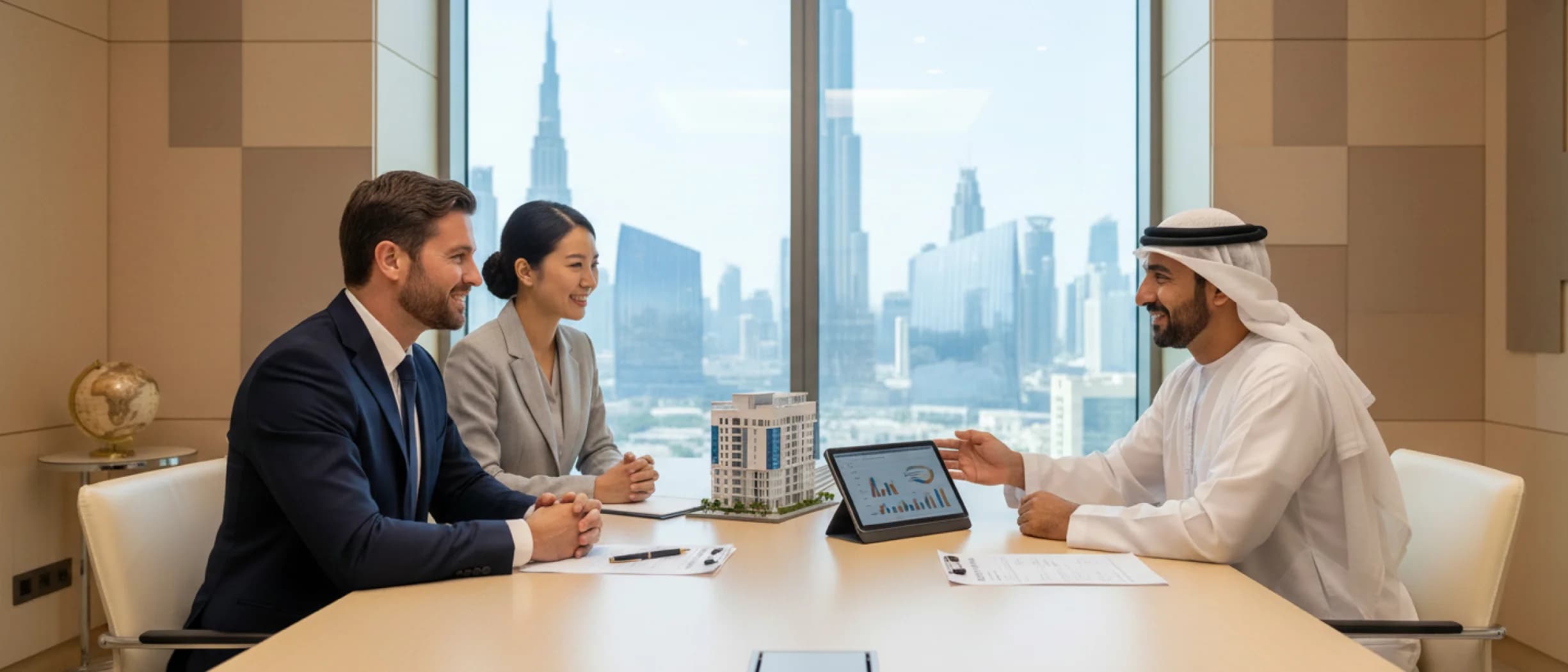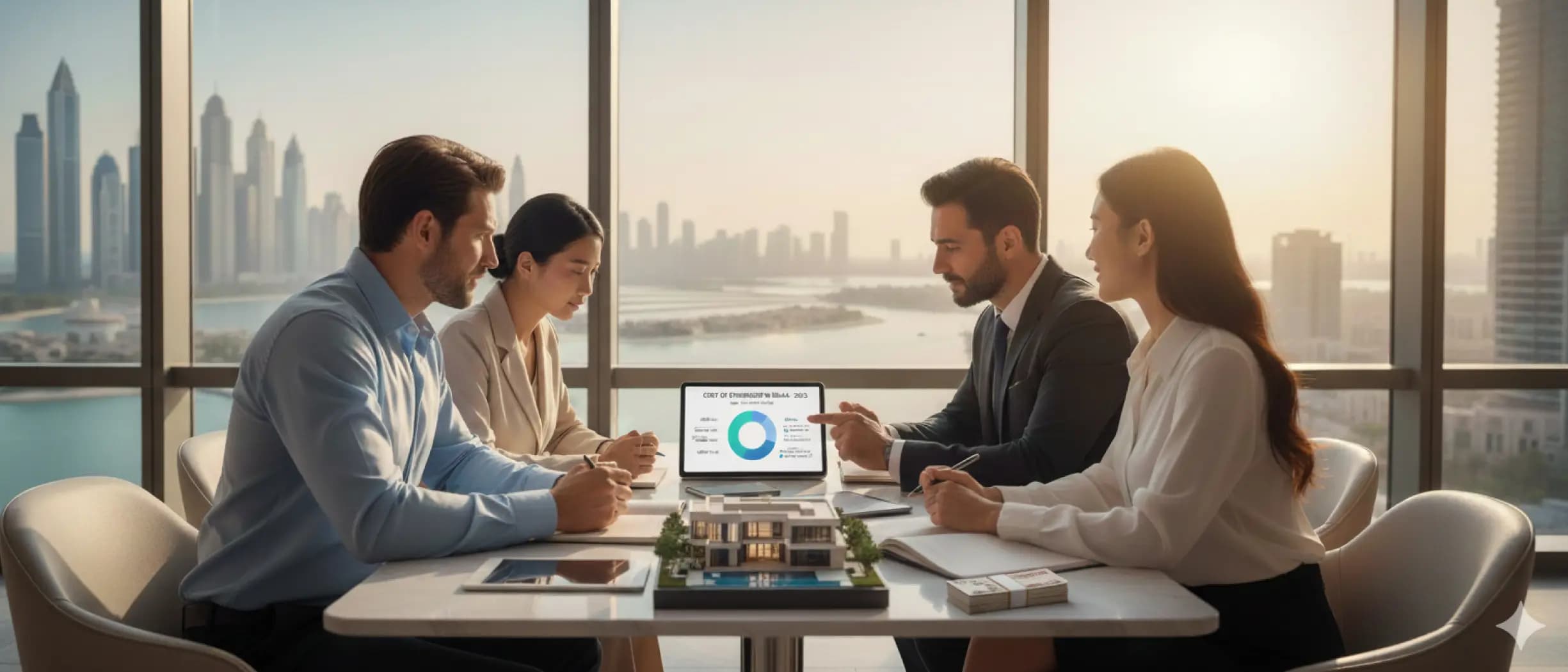
Adil Raza Khan | February 26, 2025

Dubai’s ambitious Palm Jebel Ali revival is the latest of many significant projects contributing to the city’s rapid development. Experts suggest that this project can learn from the experiences of Palm Jumeirah and other island developments. Set to be twice the size of Palm Jumeirah, the community will expand Dubai’s coastline by approximately 110km, providing homes for around 35,000 families and featuring 80 hotels, green spaces, and a variety of other amenities.
With much of the land reclamation completed over 15 years ago, developer Nakheel is already ahead of schedule and engineers began ground investigations and surveys to restart the project in 2023.
According to Khaleej times, the first 8 fronds of Jebel Ali will be completed till 2025. Nakheel is so eager to complete it on due date that it as hired the services of Jan De Nul Dredging, Belgium based company for marine works to reclaim the land from sea, throw sand in sea to level and for beach profiling.
According to Noor Hajir, Middle East head of transport planning and mobility at WSP, the project offers a “blank canvas” for Nakheel to revisit the overall planning, including land-use density and road hierarchy. Following an initial review, groundwork for the infrastructure can begin, with key elements expected to be in place within the next two to three years.
As Dubai’s road network faces increasing congestion, transportation planning for Palm Jebel Ali Dubai masterplan will be crucial. Ms. Hajir emphasizes the importance of pushing public transit and creating holistic communities to mitigate traffic issues, aligning with Dubai’s 2040 Urban Master Plan.
This plan includes the “20-minute city” concept, aiming for most services to be accessible within a 20-minute walk or bike ride. Although Dubai’s spread-out layout isn’t ideal for mass transit, the community could develop its own transit system, with multiple entry points to reduce traffic bottlenecks.
The project also presents an opportunity to develop a comprehensive active mobility network, including bike paths and pedestrian walkways.
Dubai could benefit from examples like Paris’s RER network, which efficiently connects outlying areas with the city center, and Singapore’s Sentosa Island, which limits vehicle access but provides various transit options such as monorails, cable cars, and cycle paths.
Incorporating these lessons could create a peaceful and attractive environment on the community, encouraging further investment and development.
Dubai’s population is projected to grow from 4.5 million in 2024 to 5.8 million by 2040, according to the city’s master plan. Similarly, the UAE’s population is expected to rise from 11 million in 2024 to 15 million by the end of the decade, with much of this growth driven by migration.
As real estate prices in Dubai continue to climb, projects like Palm Jebel Ali Nakheel may help ease pressure on the market by expanding housing supply and keeping prices more affordable.
While rising property prices could slow migration, expanding the real estate market through projects like Palm Jebel Ali location can help moderate price increases.However, in the long term, factors such as climate change may impact the Gulf region’s habitability, adding another layer of complexity to the UAE’s future growth prospects.

The UAE’s population growth isn’t limited to Dubai. Sharjah has seen a 22% increase in population since 2015, and Abu Dhabi continues to develop major residential and cultural projects. Rising prices in Dubai are driving some residents to seek more affordable homes in neighboring emirates like Sharjah and Ras Al Khaimah.
To sustain this growth, the UAE will need to attract highly skilled workers and entrepreneurs. Beyond real estate, continued investment in sectors such as health care, education, and research will be critical. Initiatives like the golden visa program, which targets scientists, entrepreneurs, and other talent, are part of the UAE’s strategy to diversify and sustain long-term growth.

WRITTEN BY
Adil Khan is a Dubai luxury real estate expert with over 13 years of experience in the UAE property market. He is the Chairman of APIL Properties.

Are you searching for – How Foreigners Can Apply for a Mortgage in Dubai? Foreigners can apply for a mortgage in Dubai by obtaining pre-approval from a bank in the UAE, providing valid identification and income documents, and choosing a property in a special freehold zone. Buyers of property in the UAE may be residents or non-residents, as banks will finance 60-75% of the property value, depending on the buyer's profile.
At Apil Properties, we focus on guiding foreign investors through the entire Dubai mortgage application process—eligibility checks to property registration. Our professional team guarantees a hassle-free, transparent, and compliant mortgage process that the local market has been supporting through years of experience and established developer relationships.
The following guide will explain exactly how foreigners can apply mortgage in Dubai, how they can be eligible, what documents they need, and the most recent regulations of 2025, all explained in simple terms by the best real estate agency company in the UAE—Apil Properties.

Palm Jebel Ali is one of Dubai’s most famous man-made islands, spanning 13.4 square kilometres—almost twice the size of Palm Jumeirah. Designed with multiple fronds, a crescent breakwater, and a central trunk, it’s set to host luxury villas, apartments, resorts, and marinas, creating a next-generation waterfront community for families, investors, and tourists alike.
The waterfront community by Nakheel is back in the limelight as one of the most ambitious island communities ever developed. It's finally re-launched under the Dubai 2040 Vision! As of early 2025, the revival has already sparked massive investor interest — with property transactions exceeding AED 11.3 billion in early 2025, accounting for nearly 19% of Dubai’s total real estate sales in April 2025.
For investors seeking exclusive access, APIL Properties - an authorised agency in Dubai can assist you in buying Palm Jebel Ali properties for sale. Best part? The buyers are guaranteed a premium location in this next-generation landmark.
But before that, let the experts at APIL guide you through all you need to know this year about this iconic island.

One of the most common questions that are always asked by international investors venturing into the UAE is the Cost of Buying Property in Dubai as a foreigner.
Dubai is a global real estate destination with 100% foreign ownership, high rental rates, and zero property taxation per annum. As a first-time buyer or an experienced investor, there is a need to learn about the fees, taxation, and general cost of property in Dubai among foreigners before making the move.
At APIL Properties, we focus on assisting international clients with finding their way through the Dubai real estate market in 2025!